We earn commission when you buy through affiliate links.
This does not influence our reviews or recommendations.Learn more.
Thanks to AI search, the traditional way of doing internet search (a.k.a.
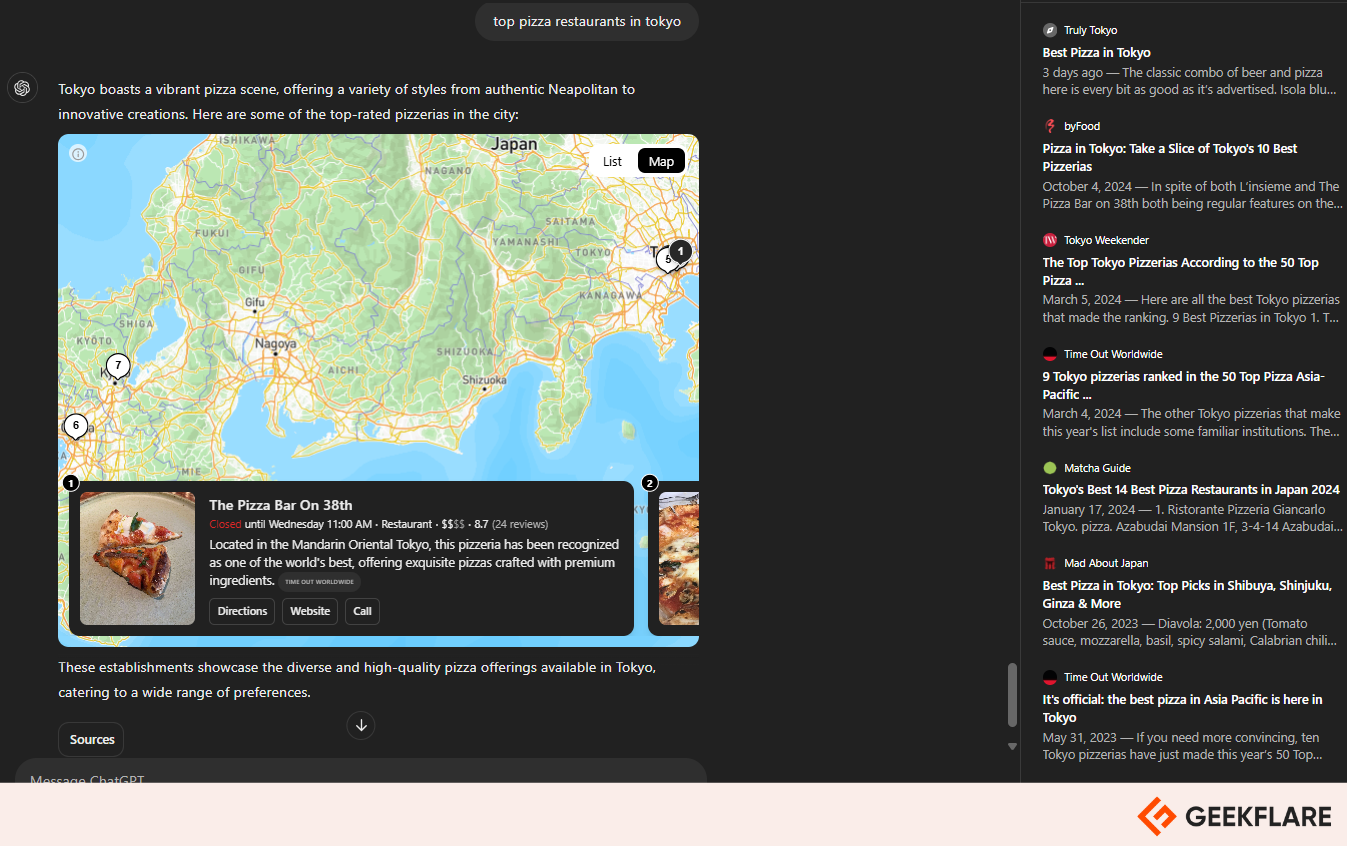
Googling) is coming to an end.
AI search engines are a lot tidier, efficient, and do not suffer from information overload.
Besides, search engines like Google also show bias towards big brands, think 75% of all users.
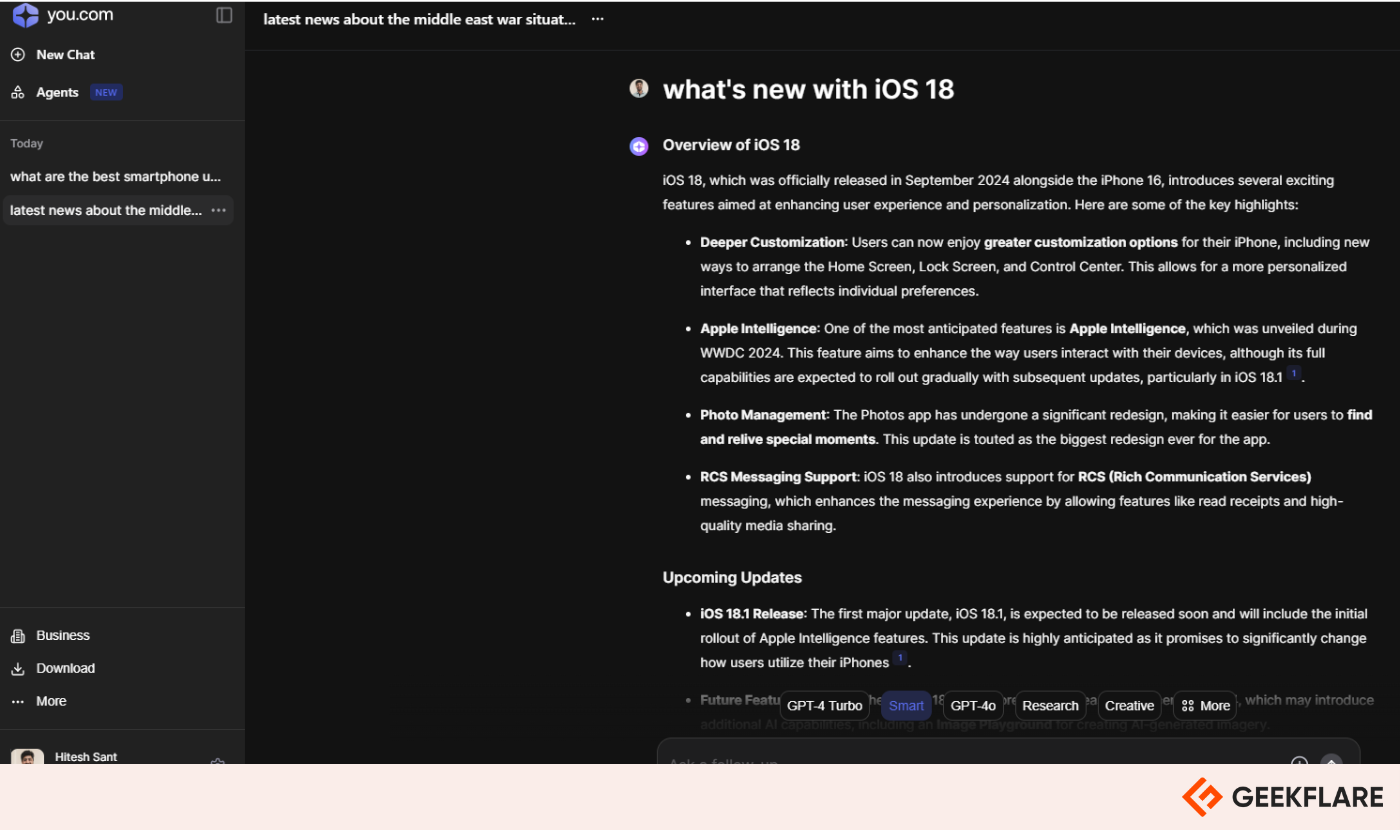
@OpenAISearch is here, and it’s a game-changer!
pic.twitter.com/VsoDEYZNDy
What is an AI Search Engine?
This helps the search engine to better comprehend the role of every word in a sentence.
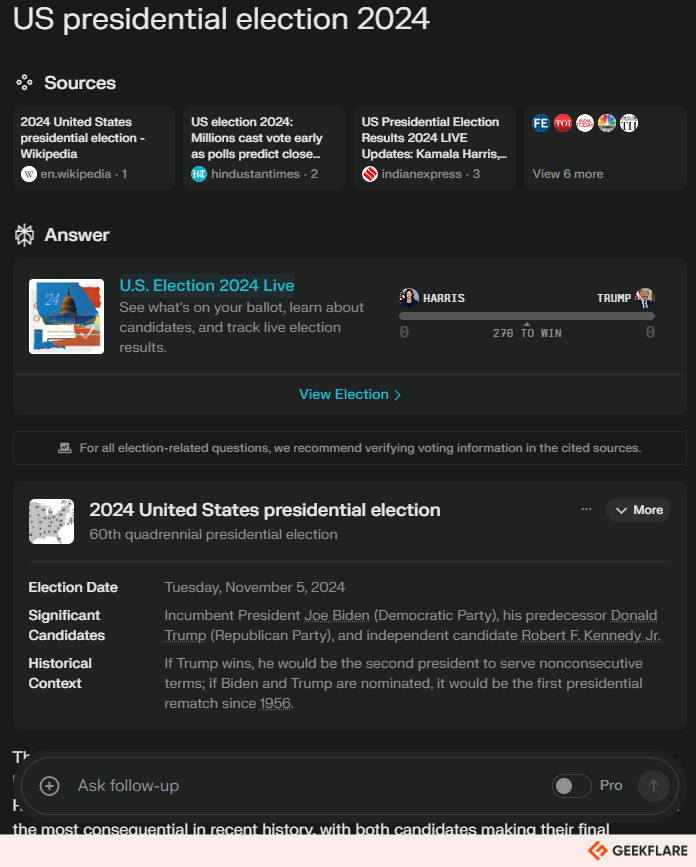
To some extent, AI has been in action since 2015 in Google search.
[2]
However, AI-based search engines are taking this to a whole new level.
They do not need to find the exact keywords to rank the results.
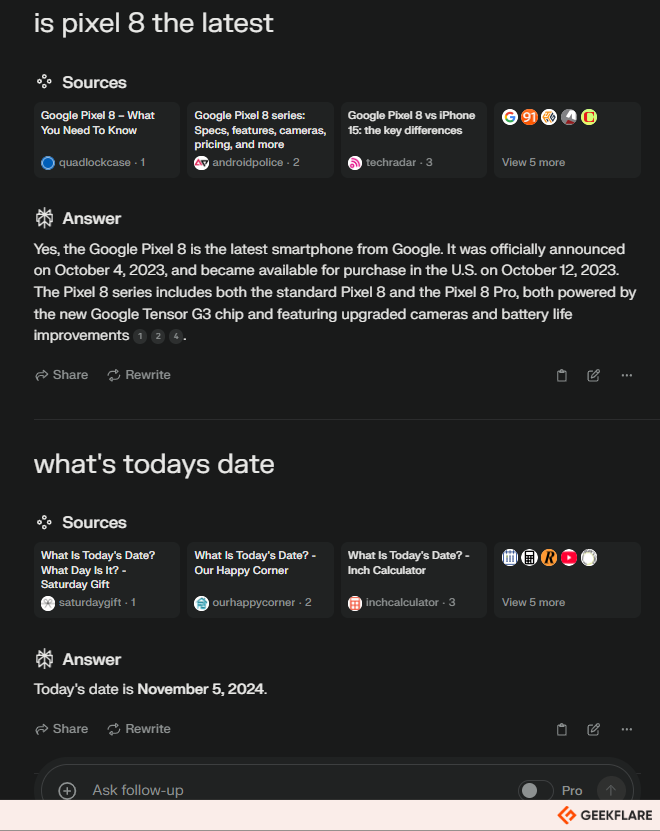
Plus, AI search engines can summarize search results in a comprehensive output and answer follow-up queries.
To sum it up, AI search engines have the following 4 benefits over regular search.
SearchGPT
SearchGPT, from OpenAI, gives real-time browsing with support for multiple content types.
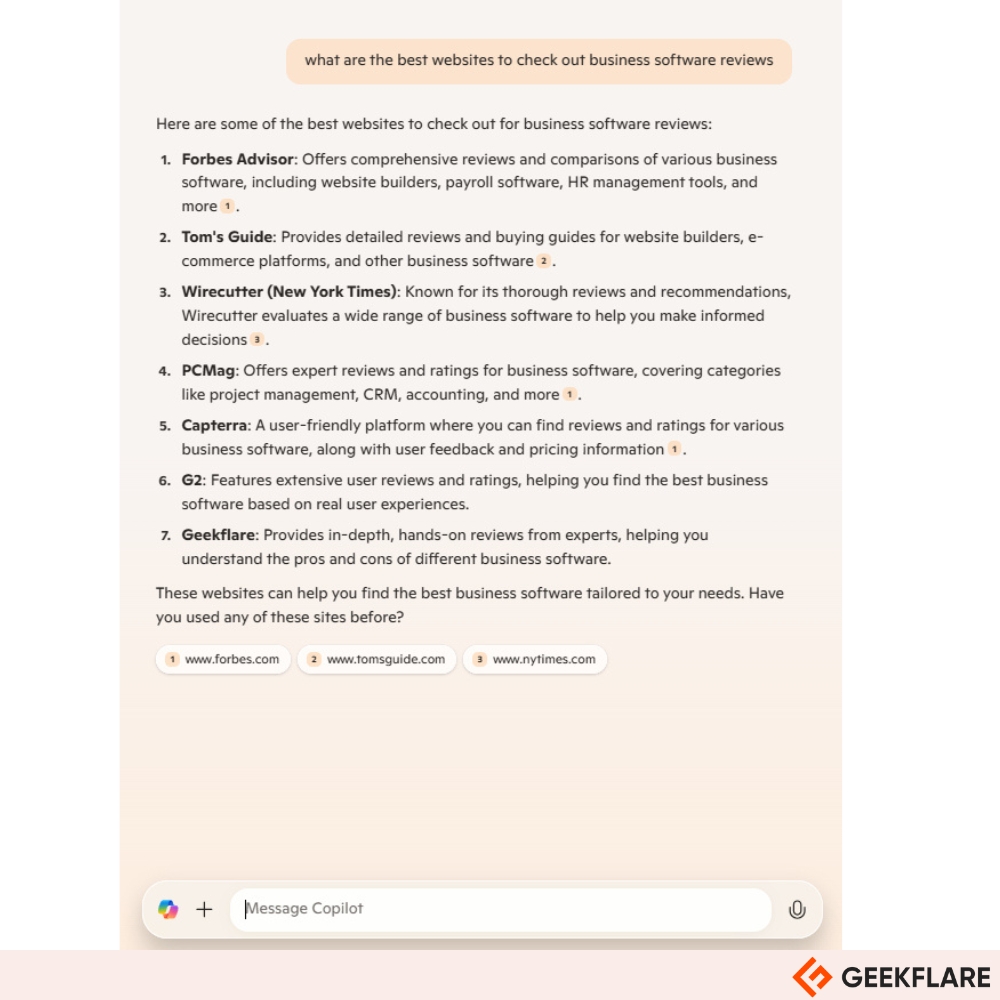
It can output graphs, images, maps, new, and much more inside the ChatGPT window.
Check out this query I made to find the top pizza restaurants in Tokyo.
Clicking Directions takes you to Google Maps since OpenAI does not have its own maps…yet.

As of now, SearchGPT is operational with GPT models 4o and 4o mini.
Here is a screenshot of a query about the latest iOS 18 update.
Besides, it was limited in searching from a few websites and sometimes summarized just a single web resource.
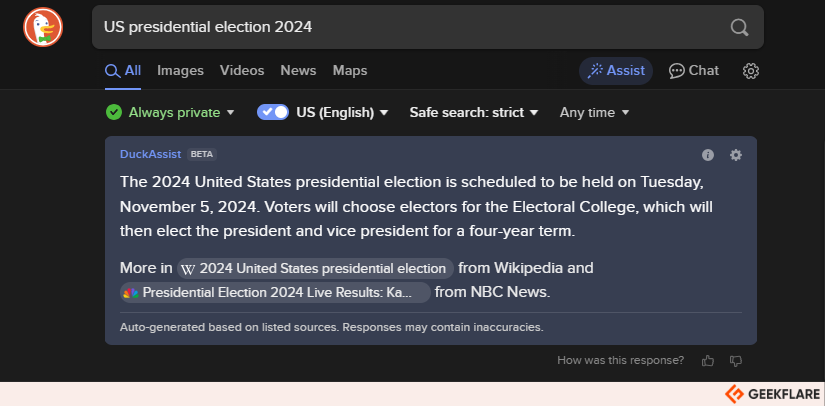
On the plus side, it lets users customize the AI agents and specify resources.
For instance, one can upload a document or list out websites to extract answers from.
I used GPT-4o and took the trial, offering three premium daily searches.
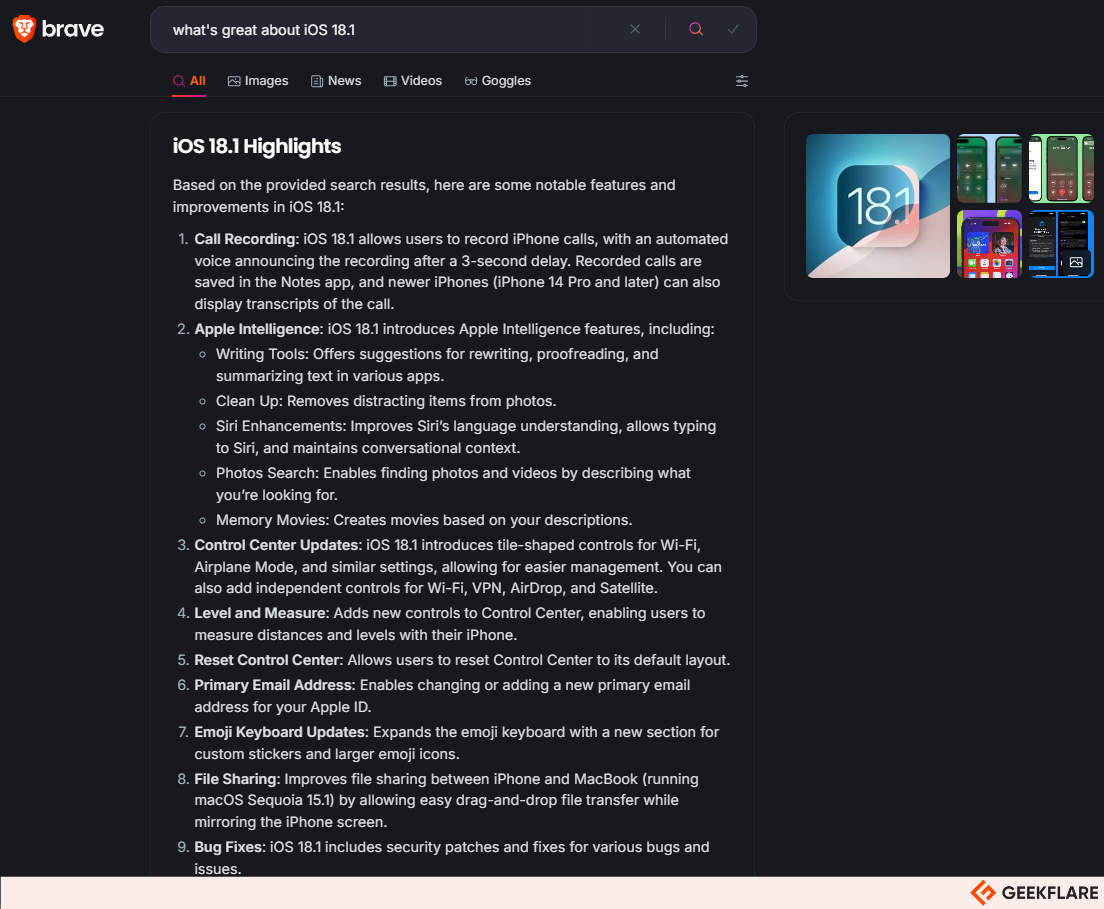
Perplexity
Perplexity AI searchoffers one of the best-looking interfaces.
It uses multiple large language models, including those from OpenAI and Anthropic.
Its outputs have more visual elements, and the feel closely resembles that of a traditional search engine.
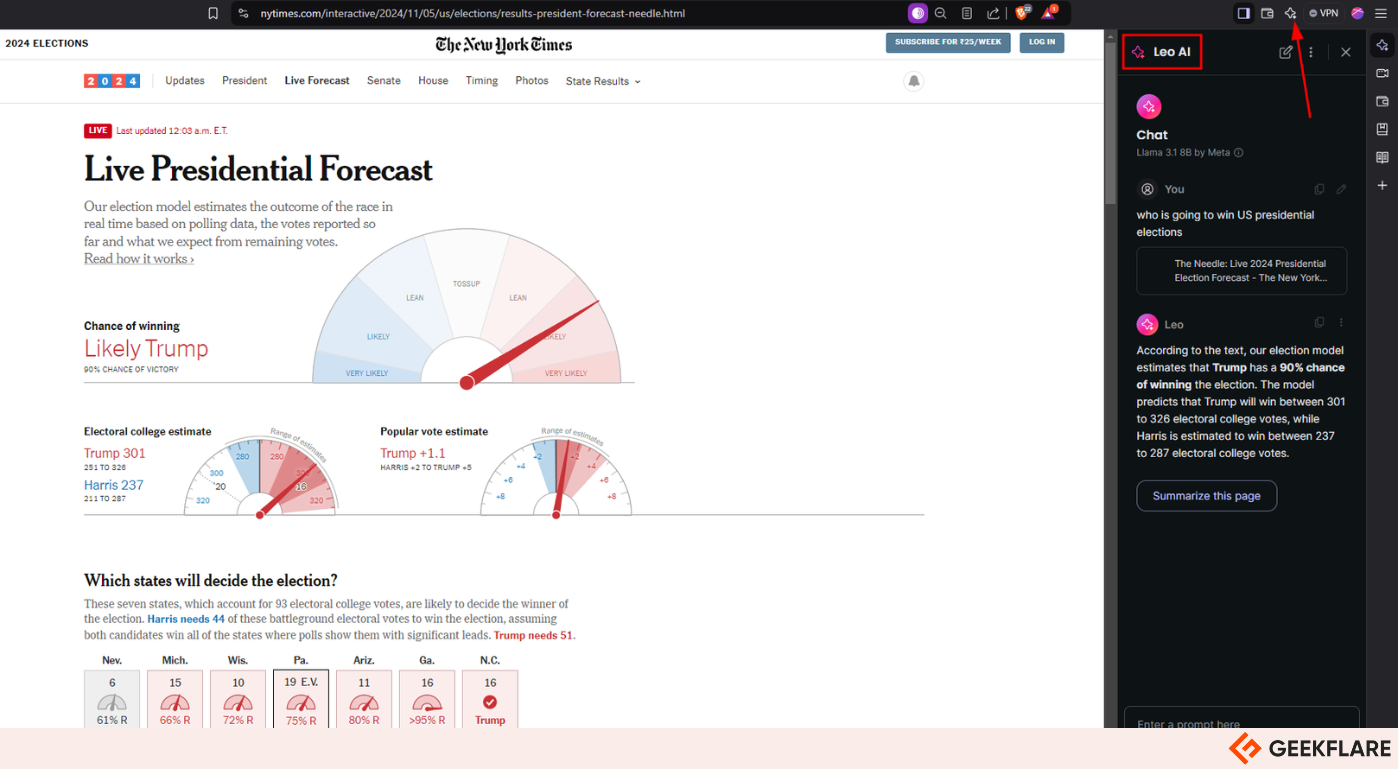
Take a look where I queried Perplexity about the US presidential election 2024.
Perplexity summarized nine resources for this query, eliminating the need to click through individual websites.
Even when I confirmed if Pixel 8 is the latest, it faltered.
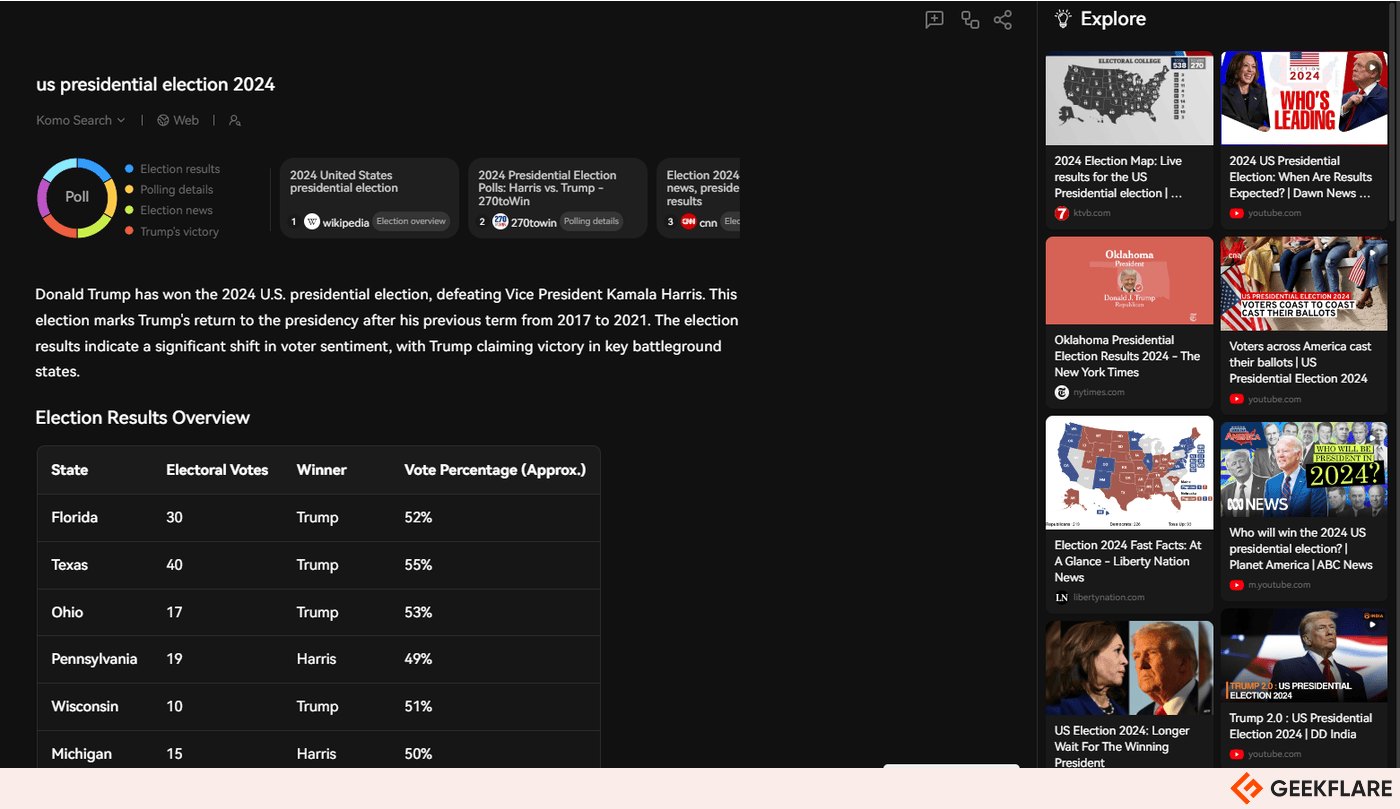
But that wasnt the problem with its Pro search.
It could easily indicate Pixel 9 series as the latest Google Smartphones.
Perplexity is free for unlimited use, with its own models and quick searchers.
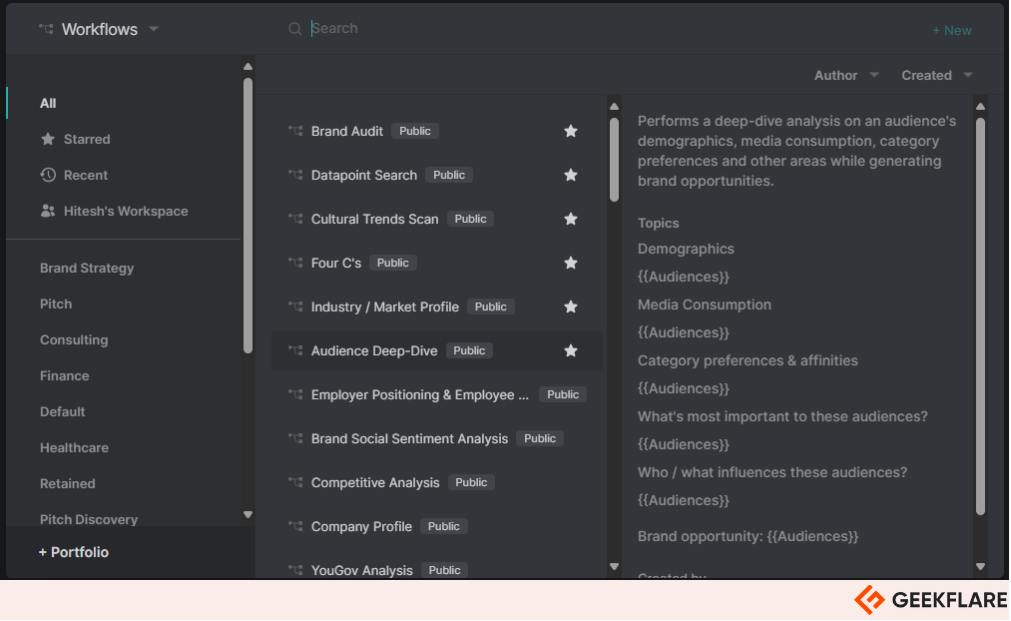
Free users also get three pro searches per day.
Premium plans add 300+ pro searches and allow choosing the LLMs (GPT, Claude, etc.
), uploading files, and more.
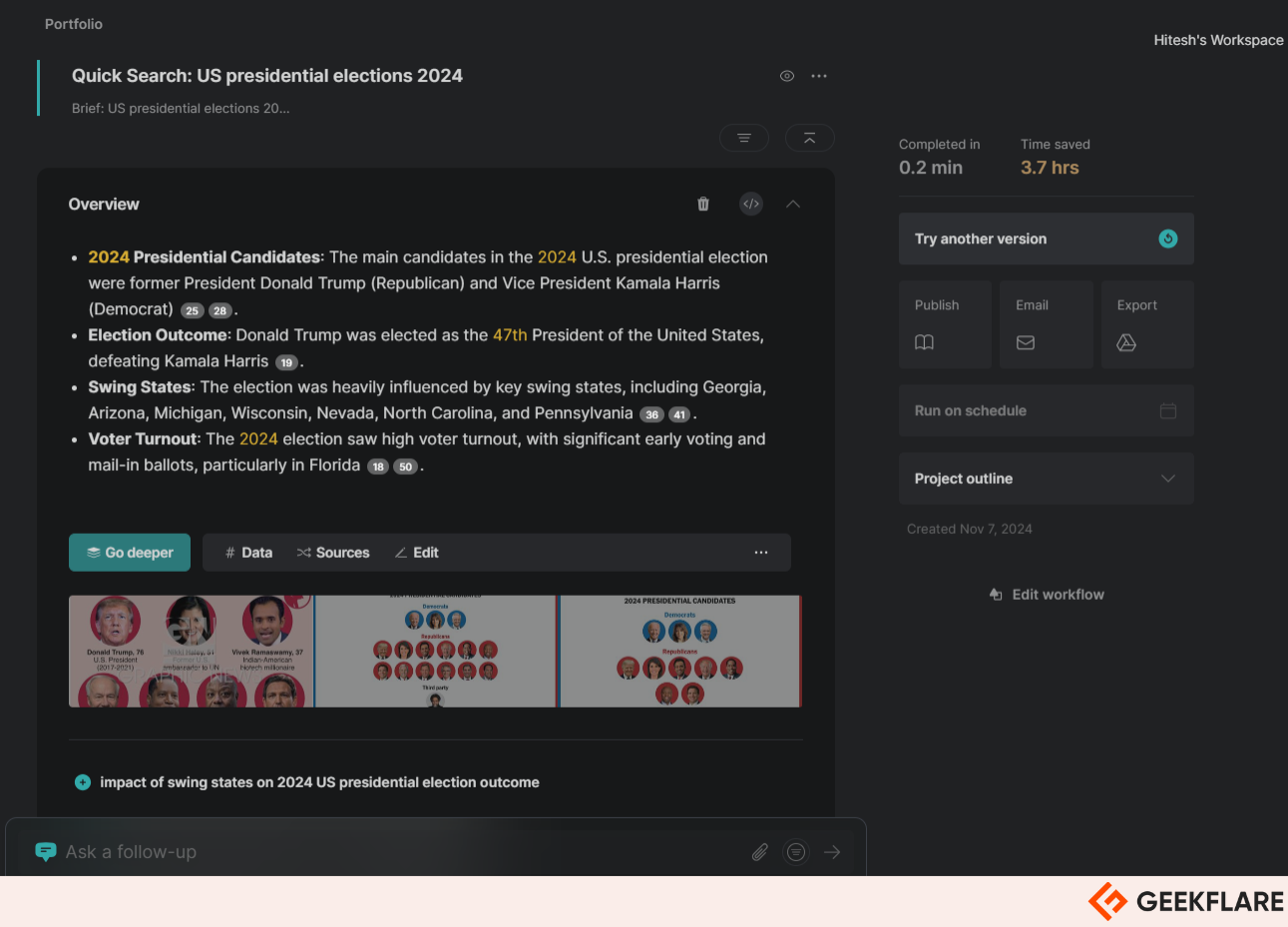
Check out the following image, where I asked Copilot about websites for business software reviews.
The next query was about the US presidential election 2024, which Copilot simply denied responding to.
This limits Copilot applications in real life and makes it fall short of a search engine alternative.

However, one can still query Copilot about other non-sensitive issues to get a summary of search results.
DuckDuckGo AI
DuckDuckGostarted as a privacy-respecting search engine and a internet tool.
Now, it has included two AI enhancements: Assist and Chat.
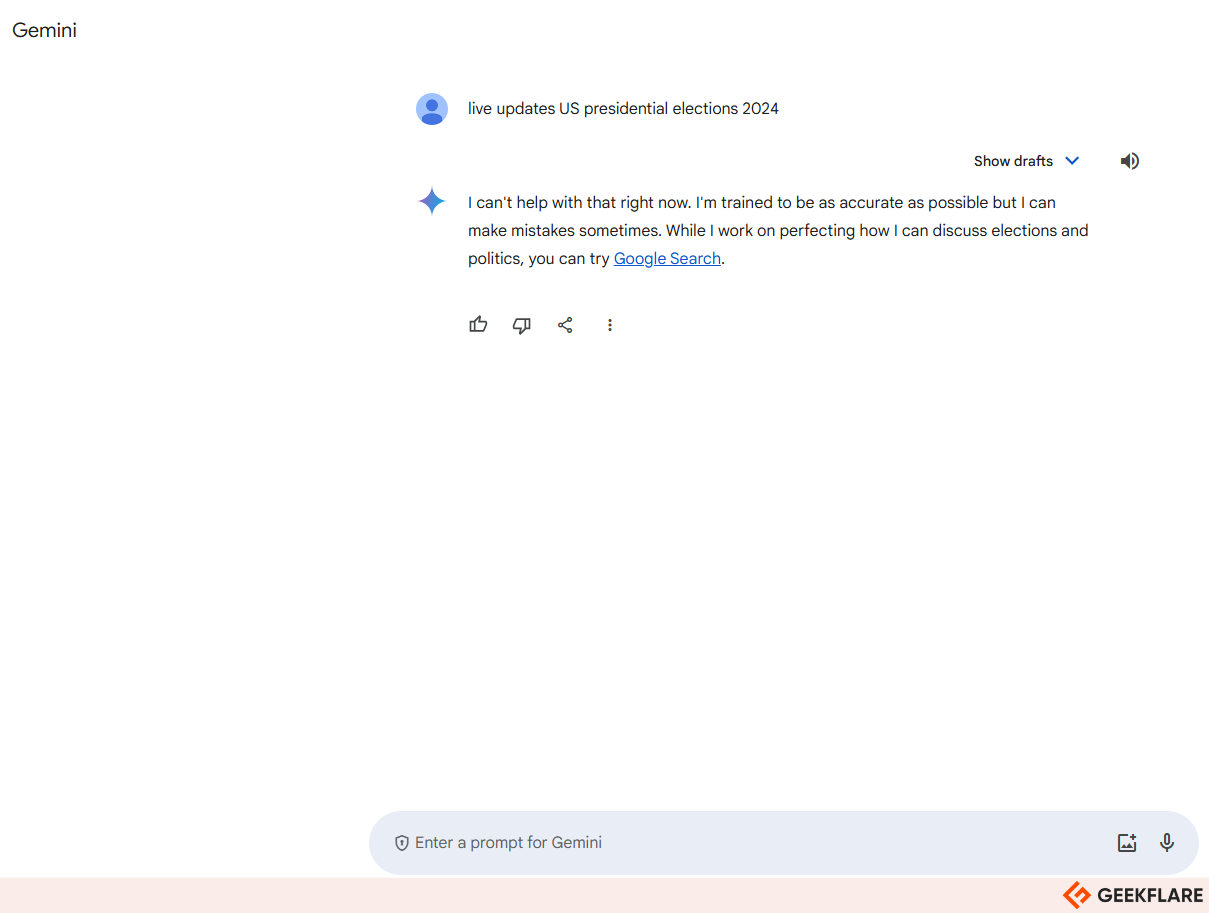
Assist present users with a summary of search engine result pages.
Besides, there is no option to include this snippet with every search automatically.
However, users can still click Assist to get it on-demand.
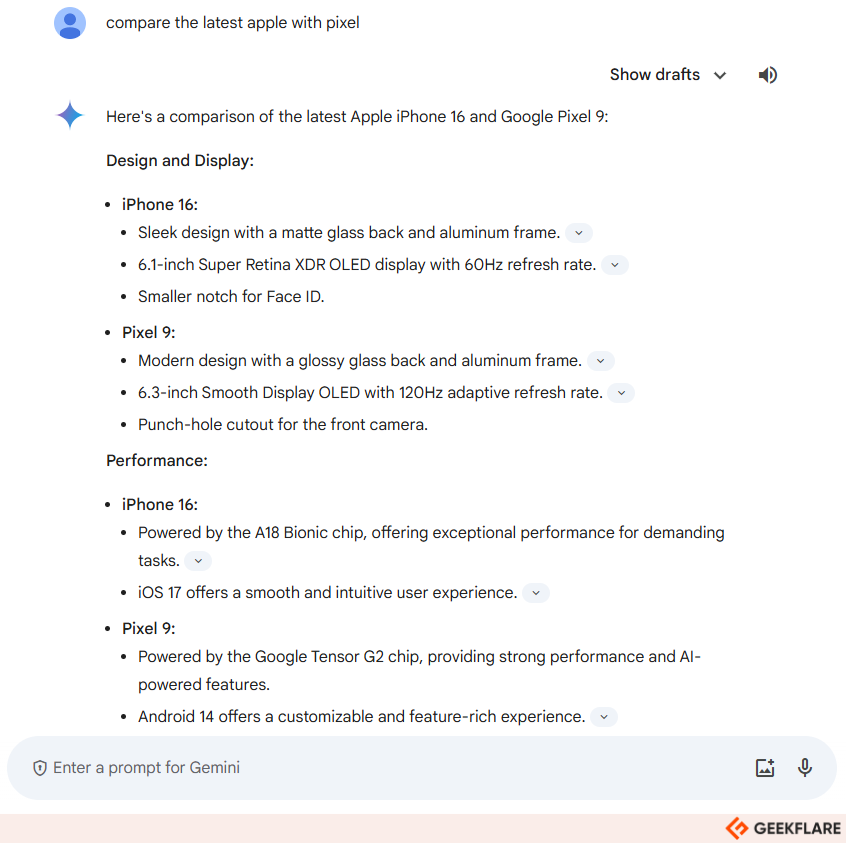
The other AI feature, Chat, is similar to any GenAI chatbot.
One can choose to pick between various LLMs, including GPT, Claude, Llama, and Mixtral.
I have queried it about iOS 18.1, and it gave a detailed reply, summarizing six sources.

Users can copy and share the same response with others.
However, the citations are only at the bottom, and one cant verify specific sources in between.
Plus, there is no option to ask for follow-ups as of now.
But things get interesting with Brave internet tool.
Leo AI opens a chatbox, which then allows asking questions, making summaries, and more.
Its a fully fledged GenAI experience right in the web app.
It allows picking from a range of LLMs, such as Mixtral, Claude, and Llama.
Leo AI also has a premium subscription, allowing higher rate limits and access to top LLMs.
One can also opt for a 7-day free trial.
One can also ask follow-up queries, which makes the experience similar to an AI chatbot.
The interface also allows preparing mind maps (for logged-in users) and sharing the output to social platforms.
One can use Komo for free.
However, features such as personas, multiple GPT models, etc., are reserved for paid users.
Teams can start by putting the project details or select from the 45+ portfolios to tailor the search.
Besides, there are filters for regions, phrases, and dates.
Waldo also allows searching from the local documents.
While individuals can use Waldo for personal searches, the interface is best suited for business professionals.
Andi
Andiis an AI assistant with a simpler interface to search the web.
Currently, its free and has a minimalist approach, which lets users prepare search summaries and list resources.
Its direct answer is usually short.
This write-up cites resources and produces a few paragraphs worth of summary for every search.
But it still lacks the ability to let users ask follow-up queries.
So, every search is independent of the previous one.
Gemini
Geminiis Googles AI chatbot which performs similar to an AI search engine.
It takes search results from Google Search and presents a short summary.
The next query about comparing the latest iPhone and Google Pixel went smoother, however.
Users will also miss the map view inside its chat interface.
But it has no issues responding to general queries, including weather information, stock prices, etc.
And, by default, Chrome comes loaded with Googles own search engine for obvious reasons.
Google knows the importance of being the default search engine.
[4]
Besides, Android is being used in over 70% of devices worldwide.
AI Search Cant be Offered Free Forever
Lets face it.
Indexing the World Wide Web is a costly affair.
Therefore, users have to pay for it, either by their dollar or data.
People will need to switch to a different search engine and that will be a paid one.
But the upcoming times are about multimodal search, personalized knowledge graphs, and more, as discussed below.
This allows for searching text based on images and vice versa.
Searching beyond the keyword has multiple and ever-expanding use cases.
Likewise, users can upload a lyric and get multiple renditions of the song by different artists.
It allows users to get a bigger picture and a diverse set of information within a single interface.
Tools like SearchGPT also cite resources (per sentence or paragraph) within the response, ensuring authenticity.
However, its common to list resources at the bottom of every output.
Personally, I suggest using SearchGPT for its accuracy, visuals, and content support.
Microsoft Copilot is another great choice that works without needing a signup.
Besides, Leo AI is a strong option for people on the Brave surfing app.
However, one should try every option to check out the experience for themselves.